
Do you have what you need to make your garden grow?


Garden Center
Store Hours
Mon-Sat:
6:00am - 10:00pm
Sun:
7:00am - 8:00pm
Curbside:
09:00am - 6:00pm
Location
Popular at Your Garden Center
Summer Popular Garden Supplies and More
Explore June Live Plants
Garden Project Calculators
;Resize=(703,395.44))
Grass Seed Calculator
When you're ready to seed your lawn, our calculator helps you estimate the amount of grass seed you'll need to get the job done.
;Resize=(703,395.44))
Mulch Calculator
Enter your preferred material, the square footage and mulch depth of the coverage space for accurate results.
;Resize=(703,395.44))
Fencing Calculator
We'll calculate the amount of fencing you should purchase based on your property needs.
Shop Outdoor and Garden Brands
Frequently Asked Questions About Gardening
Which planting zone am I in?
Check the USDA growing zone map, as planting zones have shifted over the years. Planting zones with higher numbers can plant earlier in the year. Choose plants that are meant for your zone and increase your odds of successful gardening.
What does direct sowing mean?
If the soil isn't cold and frozen, consider planting your veggie, flower, or fruit seeds directly into your garden. This is called the "direct sow" method. The time to plant will be after the threat of frost is gone for the season, as sprouts and seedlings can't weather those conditions. You can also start your seeds indoors if you'd like. Consult your seed envelope for how and when to sow seeds.
Do you carry organic plants and seeds?
Yes, we've got a variety of organic options, including organic veggie seeds and fruit seeds, as well as organic herb and flower seeds that are subject to availability. We carry the organic soil to plant them in as well as the organic fertilizer to feed your plants.
Should I harden off my seedlings before planting them outside?
Yes, if you raised plants indoors from seeds in your own plant nursery, harden them before you transplant them. Hardening is the process of getting them used to outdoor life, spring rains, and temperature swings. It slows their growth until they're strong and ready to take off during a spring warm front. Hardening also makes your plants more resilient to a sudden cold snap.
What do I do before planting seeds or transplants outside?
Before you plant, make sure that your plant will have the right amount of sun, the soil is healthy, and it's warm enough outside. Check your seed package to see if it likes partial sun, full sun, or shade, as well as what time of year it should be planted. Space your plants as described on the seed package for best results so your plant babies have room to grow big and strong.
What are seed tapes?
If you want more guidance in planting or are dealing with extremely tiny seeds, consider seed tapes. They're biodegradable pieces of paper with tiny seeds affixed at regular intervals. Just bury the tape and water as directed. If all goes well, you'll have perfectly spaced sprouts pop up soon.
Garden Project Ideas
The Home Depot Garden Center at Riverdale, NJ
Set Up For Springtime
On beautiful spring days, tidy the yard before everything blooms in earnest. You can also add beauty and interest with stonework, water features, and hardscaping. Don't forget to sweep the gazebo and clean out the shed in preparation for spring, too. No matter what outdoor projects you choose to tackle and which plants you need, you'll find that The Home Depot Riverdale, NJ Garden Center is the local plant nursery to help you enjoy your spring activities to the fullest.
Plant Hardiness Zones Explained
The first thing to learn when planting vegetables, spring flowers, and other seeds is your planting zone. Every location in the U.S. and its territories is sorted by climate. Find your zone on the USDA planting zone map and learn when to plant seeds.
For example, you could transplant bell peppers outdoors in mid-March in Zone 10, but not until the end of May in Zone 4. You'll have good results with plants that have your zone number or less. In other words, a Zone 8 garden can support plants listed as Zones 1–8. You can plant seeds indoors roughly a month before you can plant them outside, known as direct sow. Always read your seed packet for details. If you start them later than recommended, it's not ideal, but it will even out as time passes.
Gardening in Your Growing Zone
In Zone 5, which includes parts of Pennsylvania as well as upstate New York, Vermont, New Hampshire, and southern Maine, your best bets for veggies will be root vegetables like beets and carrots, leafy greens including lettuce, and cruciferous veggies like broccoli and kale. You can try squash, but prepare for additional warming upkeep when late frost is forecast. Target planting dates are roughly mid-March through May 1st, depending on whether you're directly sowing them into your garden or starting your seeds indoors.
Much of Ohio, Pennsylvania, West Virginia, New Jersey, Connecticut, southern New York state, and Massachusetts are in Zone 6, so planting can begin earlier there than farther north. Parts of Virginia are even warmer, coming in at Zone 7. The outdoor growing season doesn't begin until mid-March or even April, although you can plant some veggie seeds halfway through February. Tomatoes, peppers, cucumbers, squash, onions, and other classic garden crops will do well in this region, and most of them can get an early start indoors before spring really moves in.
Start Seeds Indoors
Save money and gain the satisfaction of growing your garden from seeds by starting them indoors in your own plant nursery. We've got all the seed starter supplies you'll need. Veteran planters and new gardeners alike should disinfect seed trays with a watered-down bleach solution before reusing them each year. When your pots or trays are prepared, plant your seeds. As for the soil, test the mineral levels and pH to find if it needs amendments or additives. Soil pH differs among regions, and what your plants need depends on what you're growing. Most vegetable plants like a pH of around 6.5. Soil amendments can tip the balance of your soil in a way that'll help your plants.
Measure your finger to use it as a ruler. In general, you'll plant 3–5 seeds, then press them into the soil to the depth you need with your finger. Mark where you planted the seeds with a toothpick or plant tag. That way, you'll know where your seeds should pop up, and you can be sure they're not weeds. Otherwise, it'll be a surprise when the sprouts push out of the soil.
Sprouts
When your seeds have sprouted but aren't ready to go outside yet, you can still prepare them for outdoor life. These inch-tall micro-seedlings are fragile but resilient. Seedlings don't get all this pampering in nature, so they can handle more than you think. However, don't go overboard, as your sprouts are still babies. You can even use an oscillating floor fan on low to mimic the wind and strengthen their stems.
Harden Your Seedlings
Once your seedlings have sprouted and are a few inches tall, start hardening them off. This is a process of gradually introducing them to the outdoors, making them stronger in the long run. Hardening means you're less likely to lose your growing garden during a sudden cold snap.
Transplant Young Plants Into Their New Homes
When your plants have three or four real leaves — different from mini seedling leaves — transplant them. In quality soil, dig a hole the same size as the dirt plug where your transplant has been growing. If your ground soil isn't fantastic, dig a slightly bigger hole and fill the extra room with nutrient-rich topsoil. Apply any fertilizer as directed on the package, either on top of the soil after it's planted or in the hole. Don't apply more than recommended, as you could burn and kill the plant instead of helping it along.
Protect Your Garden With Mulch
Finish off your garden with mulch and compost. Compost enriches the soil so your garden can grow even better. It may help foster stronger and larger plants that bear more flowers and fruit. Mulch controls weeds and keeps your soil from drying out. Mulch and compost can be DIY creations, but you can also purchase them in-store. The next time you're looking for "mulch near me," stop by the Garden Center to get the right amount.
Greet the Spring
Late winter into early spring is an exciting time in the world of gardening. Prepare to fertilize your lawn, plan your garden and landscaping, and browse The Home Depot nursery to find inspiration on what to plant when the weather warms. For those without lawns, consider adding artificial grass or an outdoor rug to your outdoor space. Shop for the soil, seeds, and fertilizer you need in the aisles of your Riverdale, NJ Garden Center, online, or on our mobile app. Let's get growing together.
Nearby Stores
Find Another Store
545 Route 46
Totowa, NJ 07512
7.98 mi
Mon-Sat: 6:00am - 10:00pm
Sun: 7:00am - 8:00pm
780 Route 46 West
Parsippany, NJ 07054
8.98 mi
Mon-Sat: 6:00am - 10:00pm
Sun: 7:00am - 8:00pm
79 Route 46 E
Montville, NJ 07045
9.03 mi
Mon-Sat: 6:00am - 10:00pm
Sun: 7:00am - 8:00pm
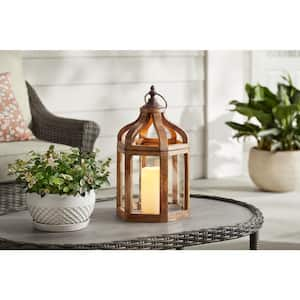
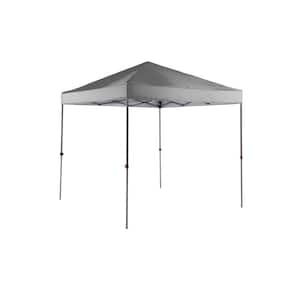
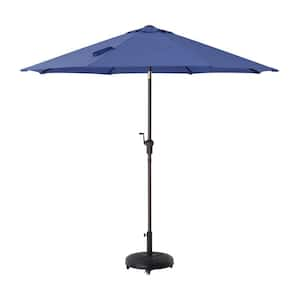
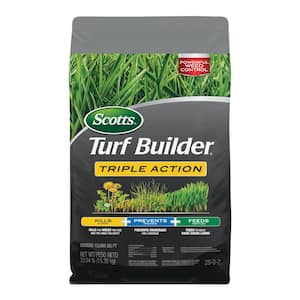
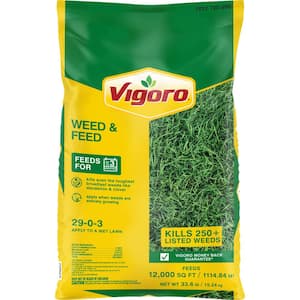
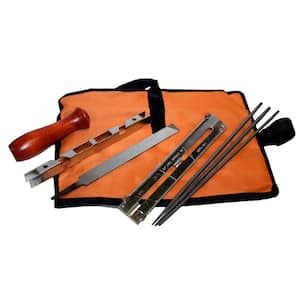
)
/17_514245_S_012_Product%20Image%20(square).jpg?im=Resize=(300,300))
)
)
)
;Resize=(300,300))
/2023_P2_Rain_Barrels_Product%20Image%20(square).jpg?im=Resize=(300,300))
)
)
)
)
;Resize=(300,300))
;Resize=(300,300))
;Resize=(300,300))
)
;Resize=(300,300))
;Resize=(300,300))
)
/12_SOIL_B_0420_Social%20media%20(square).jpg?im=Resize=(300,300))
;Resize=(300,300))
;Resize=(300,300))
;Resize=(300,300))
;Resize=(300,300))
)
;Resize=(300,300))
)
;Resize=(300,300))
;Resize=(300,300))
/18Patio_Camden_Seagrass_5pcSeating_Planters_302468736_DTL3_L_Social%20media%20(square).jpg?im=Resize=(300,300))
;Resize=(300,300))
;Resize=(300,300))
)
;Resize=(300,300))
;Resize=(300,300))
;Resize=(300,300))
;Resize=(300,300))
)
;Resize=(300,300))
)
)
.jpeg?im=Crop,rect=(363.69230769230774,1.2307692307692308,958.7692307692308,958.7692307692308);Resize=(300,300))
;Resize=(300,300))
;Resize=(300,300))
)
)
;Resize=(300,300))
)
)
;Resize=(300,300))
;Resize=(300,300))
)
;Resize=(300,300))
)
)
;Resize=(300,300))
;Resize=(300,300))
)
;Resize=(300,300))
/Capello_Spring_Mum_10in_Social%20media%20(square).jpg?im=Resize=(300,300))
;Resize=(300,300))
)
)
)
)
)
;Resize=(300,300))
)
)
;Resize=(300,300))
;Resize=(300,300))
;Resize=(300,300))
)
)
;Resize=(300,300))











































